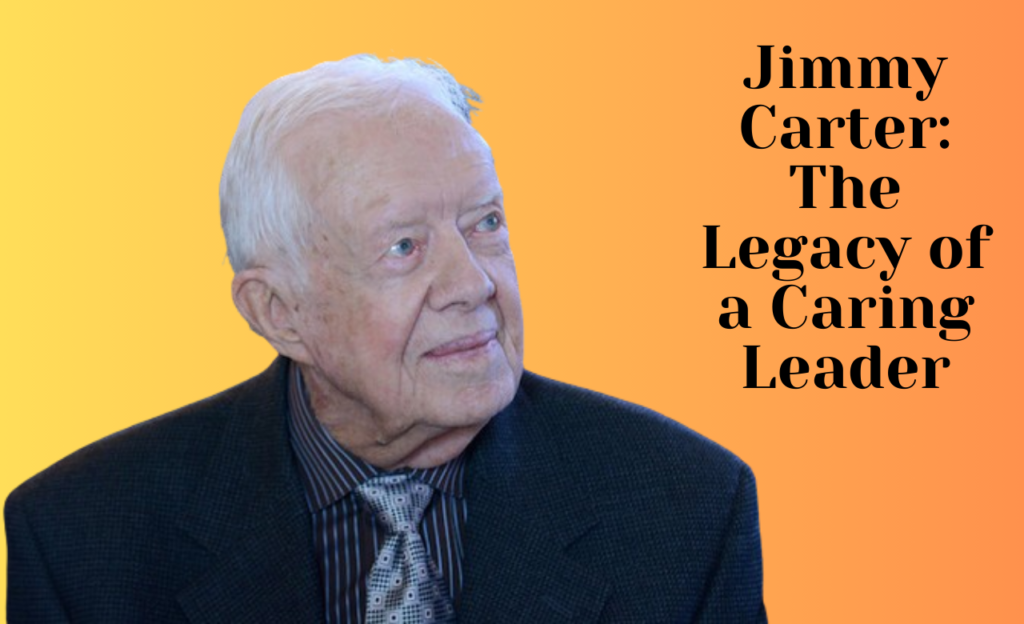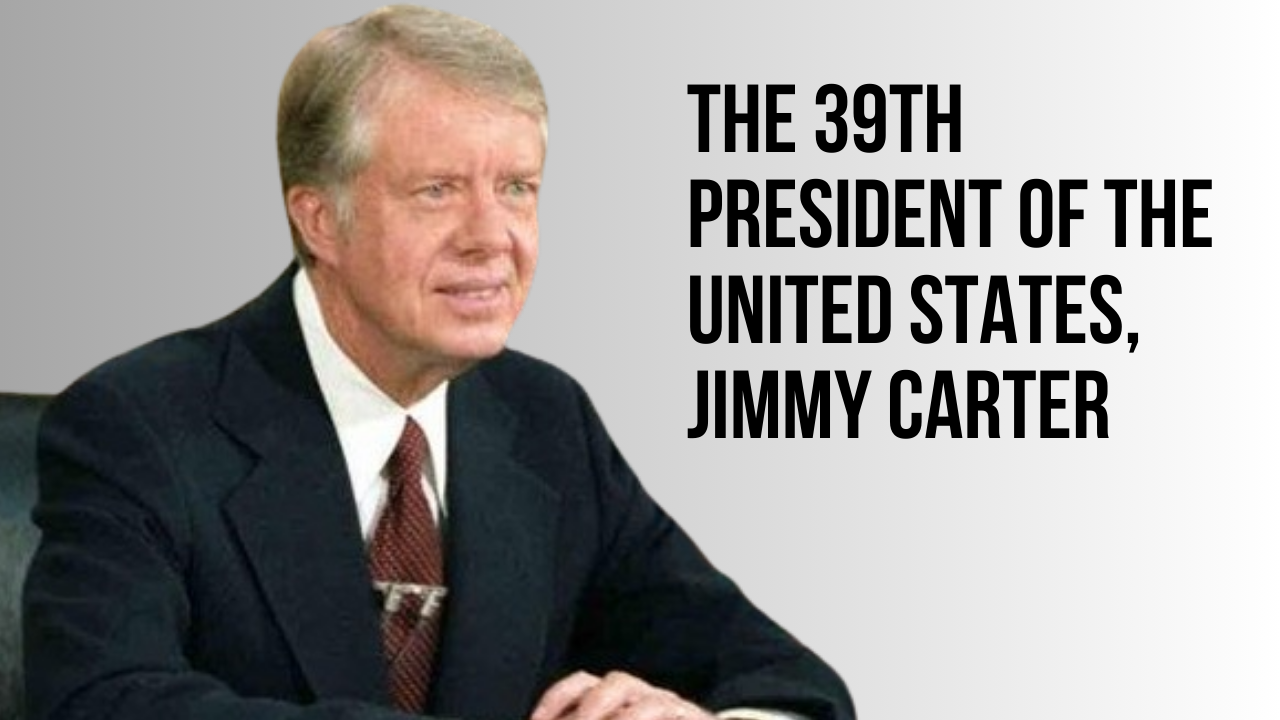Jimmy Carter
“The 39th President of the United States, Jimmy Carter, transcends the realm of politics, embodying qualities of kindness, morality, and unwavering dedication to the betterment of humanity. Born in Plains, Georgia, on October 1, 1924, as James Earl Carter Jr., he emerged from humble beginnings, symbolizing the quintessential American dream. Rising from a peanut farmer to the highest office in the nation, Carter’s life and legacy exemplify a commitment to humanitarianism, diplomacy, and human rights that has left an enduring impression on world and American history.”
Early Years and Political Profession:
Carter’s parents instilled in him the virtues of hard labor, honesty, and community involvement, which impacted his early life. He served in the Navy upon his graduation from the USNA and then returned to Georgia to oversee the family’s peanut field. He started his political career holding local office, going on to become Georgia’s governor and a state senator. During his tenure as governor, he implemented progressive initiatives like budget reform and desegregation, which demonstrated his dedication to justice and equality.
Presidental Accomplishments and Difficulties:
Jimmy Carter ran a strong campaign for president in 1976, emphasizing the idea of an administration “as good as its people.” Carter was elected as the 39th President of the United States, and his tenure was marked by both successes and setbacks. He mediated a historic peace deal between Egypt and Israel in 1978, which is considered one of his most significant achievements. This accomplishment—for which Carter received the Nobel Peace Prize in 2002—illustrates his commitment to diplomacy and resolving conflicts.
Carter did, however, confront domestic difficulties, such as an economy beset by severe oil shortages and soaring inflation. His attempts to resolve these problems were not entirely successful, drawing criticism and making his 1980 reelection campaign difficult. Despite losing, Carter would go on to become a worldwide statesman and a shining example for humanitarian causes in his post-presidential years.
Humanitarian Initiatives:
It can be argued that Jimmy Carter’s legacy after leaving office exceeds his tenure. Jimmy and Rosalynn Carter established the Carter Center in 1982 as a demonstration of their dedication to furthering democracy, human rights, and international health. Carter’s commitment to improving the lives of those in need is exemplified by the center’s critical involvement in the eradication of diseases like river blindness and Guinea worm sickness.
In addition, Carter’s work with Habitat for Humanity has demonstrated his practical approach to fighting poverty. He has embodied the idea that everyone deserves a decent place to live by helping build homes for low-income families by slinging a hammer alongside others. Carter’s dedication to service is a reflection of his faith in the ability of individuals to have a positive influence on the world
Promotion of Human Rights:
Throughout his life, Jimmy Carter has consistently supported human rights. Carter has been a strong advocate for justice and dignity for all, opposing both the use of torture and apartheid in South Africa. His reputation as a statesman dedicated to promoting peace and democracy has been further cemented by his work as a mediator in international disputes and elections.

Repercussions and Legacy:
It’s evident when we consider Jimmy Carter’s life that his influence goes well beyond the political sphere. His unwavering dedication to human rights, diplomacy, and humanitarian issues has made a lasting impression on the world. Numerous people have been motivated to perform acts of service and advance society by Carter’s ability to put his principles into practice.
In summary, Jimmy Carter’s life narrative exemplifies tenacity, empathy, and a steadfast commitment to promoting human welfare. Carter’s journey from modest origins in Plains, Georgia, to the international arena, demonstrates the transforming power of leadership based on honesty and empathy. Jimmy Carter’s legacy serves as a reminder to us as we traverse the intricacies of our world that true greatness is found in serving others as much as pursuing power.

